Policies » Section I: Instruction » IH: Instructional Programs
Policy Date: 06/01/2006
Download Policy NowCSD File: IH
CANDIA SCHOOL DISTRICT
INSTRUCTIONAL PROGRAMS
Because education is a lifelong process, the District’s educational programs will provide both formal studies to meet the general academic needs of all students, and opportunities for individual students to develop specific talents and interests in vocational and other specialized fields, and grow toward independent learning.
The various instructional programs will be developed with the view toward maintaining balanced, integrated, and sequentially articulated curricula which will serve the educational needs of all school-aged children in the district.
The Board subscribes to the philosophy that well-developed reading and other basic skills, including ability to spell; speak well and write intelligently are essential in our society. It will adopt specific requirements to ensure that our students are sufficiently competent in these essential skills.
At all levels, provisions will be made for a wide range of individual differences in student abilities and learning rate through uses of a variety of materials, adjustments in programs, and courses adapted to special needs of students.
Each pupil, regardless of his/her occupational choice, shall be provided with the opportunity to acquire the basic skills, knowledges, attitudes, and understandings needed for living in a democracy.
This policy will insure that students have the opportunity to develop intellectual curiosity, critical thinking, problem-solving abilities, and aesthetic appreciation in the school years in such a manner that they will be used throughout a lifetime.
The following ten educational goals are intertwined; no one goal stands in isolation from the rest. They will help to define performance objectives for learners, identify tasks to be performed by teachers in giving life to those objectives, and help to determine means for evaluating learners’ progress toward the goals. These goals express the quest for quality, reaching for the ideal and reality in education and the District’s instructional programs.
1. Physical and Emotional Well-Being: Education should contribute to the learner’s physical and emotional well-being, especially to a sense of personal worth and to a capacity for influencing one’s own destiny–self discipline, self respect, and self control.
2. Basic Communication Skills: Education should develop in each learner the basic skills needed for communication, perception, evaluation, and conceptualization of ideas. Among the most important skills are reading, writing, speaking, listening, problem solving, creative and critical thinking, visual and computational skills.
3. Effective Use of Knowledge: Education should provide for each learner access to our cultural heritage, stimulate intellectual curiosity, and promote intellectual development.
4. Capacity and Desire for Lifelong Learning: Education should foster and stimulate in each learner the natural desire for lifelong learning and should develop the skills necessary to fulfill the desire.
5. Citizenship in a Democratic Society: Education should provide each learner with knowledge of
understanding of how our society functions in theory and in practice. “Citizenship” means the privileges, duties, and responsibilities of citizenship; appreciation and respect for civic and social institutions of the United States; and knowledge of the organization and operation of municipal, county, state, and federal government.
6. Respect for the Community: Education should provide each learner with knowledge and experience which contribute to an understanding of human similarities and differences and which advance mutual respect for humanity and for the dignity of the individual.
7. Occupational Competence: Education should provide the learner with the skills, experience, attitudes and guidance for initial job placement; it is even more important for the learner to develop a capacity to adapt to changing conditions.
8. Understanding of the Environment: Education should provide each learner with knowledge and understanding of the social, physical, and biological worlds and the balance with environmental issues, and should develop attitudes and behavior leading to intelligent use of the environment.
9. Creative Interests and Talents: Education should provide each learner with varied opportunities to nurture interests, to discover and to develop natural talents, and to express values and feelings through various media.
10. Individual Values and Attitudes: Education should expand and advance truth and honesty with self and others; fairness, integrity and justice; respect and human worth; responsibility to oneself and to others; community service; and responsible citizenship.
Regulatory References: NH Code of Administrative Rules, Section Ed 306.04 (a), (b), (j), (k)(4-6), Policy Development: Meeting the instructional needs of each student with different talents
Adopted: June 1, 2006
